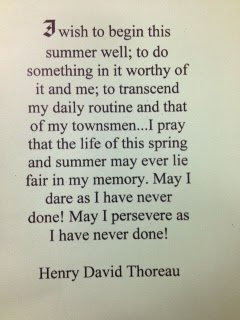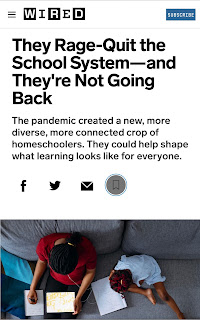· Have I fallen in
love with learning?
· Tell a story about
myself in the Open-Source Learning Academy
o Make sure that I
show how I changed/grew from the beginning to the end
· Talk about trust
· Something I’m
passionate about
· Something I laughed
about
· A unifying theme
between the masterpieces (caring use of digital tools)
· I completed the
hero’s journey
· Include literary
technique (dialogue, foreshadowing, extended metaphor)
{STORY ABOUT MY LEARNING JOURNEY}
On Friday, March 13, my students and
I were talking in room 619 at Santa Maria High School.
“Dr. Preston, do you think we will be
able to come back to school on Monday?”
“I don’t know.”
“Well, will our class keep going if
we don’t?”
I pointed to the screen behind me.
“Hey everyone, if we can’t meet in
person, what exactly do you think will change about what we learn together?”
Everyone answered at once.
“NOTHING!”
50 zoom meetings later – some of
which were over Spring Break – these students transformed themselves from
passive, obedient, bathroom pass-toting rule followers to independent,
creative, collaborative learners.
Open-Source Learners.
What does it mean to be an
Open-Source Learner? How is being a learner different than being a student?
First of all, it’s important to
remember that school is all about rules. More specifically, school is all about
seeking rewards and avoiding punishment. This is true for teachers as well as
students. Everyone learns their part early in life – we go to school before we
are old enough to have a choice. Before we are old enough to say, “No.” People
who win the school game learn how to keep authority figures happy.
But what happens when our idea of
school changes? What’s left when we don’t have to get up in the morning and go
to campus, switch gears every time a bell rings, and hold our pee until someone
pays attention to our needs and takes us seriously enough to give us a bathroom
pass?
This school year began the same way
that last year ended. I met with students online and I introduced them to
Open-Source Learning.
What people didn’t know was that I
could see the future.
Last spring, I met with the
superintendent of the school district. “I hope I’m wrong,” I said, “but here is
what I think will happen over the next 18 months.”
I wrote a paper outlining how our
society and our school system was likely to deal with the pandemic (spoiler:
not well). I pointed out that even after the pandemic, learning will face other
sources of disruption, like environmental events, political conflict, and economic,
food, and housing insecurity.
Most importantly, I explained how the
internet and a learner-centered, interdisciplinary curriculum could support
resiliency in learning for students, and address individual needs more
effectively than the traditional “one-size-fits-all” classroom curriculum.
At the end of last semester, the
superintendent put this thinking into action. Instead of waiting for the future
to find us, he asked me to create the Open-Source Learning Academy pilot
program for the Spring 2021 semester.
During finals week of the Fall 2020
semester, I told students in my English classes that they may have a new
teacher in the spring. I told them that I would be leading a new program, and
that they could schedule a meeting with me if they wanted more information.
When students met with me, I
described the process of identifying something we’re really interested in –
that we really care about – and how we can use elements of the courses required
for graduation and college admission to help us understand concepts and practice
skills that get us where we want to go.
I’ve been teaching, learning,
writing, and consulting for a long time. Often, when someone has a *really
great idea!* I’m somewhere nearby.
But as long as I’ve been helping
people learn and understand, that first step always feels new to me. When I encounter
a person who really wants to learn, I experience something magical: I fall in
love with learning all over again. I may not care at all about the topic the
person wants to learn about. To tell the whole truth, I may not even care about
the person – after all, at that point I’ve only just met them – but I care HUGE
about the fact that they care, and that’s enough for me to get excited about
the brainstorm and the process.
Like any successful working or social
relationship, Open-Source Learning depends on trust. I’ve worked hard to earn
the trust of my learning community this semester. Trust is something I take
very seriously, and starting a new program put it front and center.
At the end of the first zoom meeting
in which I described the program to interested students, I made a request. If
they wanted to take a next step, students would have to talk with their
parents/guardians and schedule a next meeting for all of us to meet and discuss
any questions or concerns before making a final decision about enrolling.
The parents and grandparents who met
with me all said versions of the same two ideas: 1) We want the best, and 2) We
trust you to provide exactly that, because an important part of our family’s
future now depends on you.
*Gulp.* What an honor, and what a
responsibility. I always aim to make learning experiences valuable, but this
semester was special. Every day I planned, did my best to deliver what I
promised, concentrated on being present with everyone during academy and
individual meetings, and reflected on how I could improve for next time.
I hope I’ve rewarded the people who
placed their trust in me. Tomorrow is the last day of our semester – even though
the formal school year will end, my learning will continue, and so will my
commitment to the people who decided to place their trust in me.
Too often, especially in high school,
we want to be seen as successful without trying too hard. How many people want
to look naturally fashionable and attractive, like they didn’t spend 15 minutes
messing their hair up until it looked “just so”? Not me. I try hard at everything, all the
time. My passion is living the good life in every way I can imagine. I want to
cook and eat the best food. I want to throw a frisbee accurately. I want to
write the perfect novel. And, most importantly when it comes to the work I do
with learners, I want to provide the peak learning experience, so that everyone
in my community experiences what it’s like to be at their best, or at least
gets a taste of what it could be like, so that they develop their own passions
worth pursuing and doing well in life.
To me, learning is what it means to
be human. Another uniquely human experience is laughter, and that seems to go
hand in hand with learning. When I was in school, my teachers didn’t laugh
much. Mr. Dewey, my fourth grade teacher even kicked me under the table for
talking during a reading group. As you can probably guess, I hated him. Later
in the school year, I was talking (again) in the back of class. Suddenly, Mr.
Dewey stopped the lesson and stared. Uh oh. But then I realized he wasn’t
looking directly at me, and I turned to look over my shoulder. Mrs. Marquardt,
the principal, was sitting right behind me! At first I thought I was doomed.
Mrs. Marquardt was always professional, always proper. But in that moment, her
face was red, she was pinching her nose and squinting her eyes shut under her
glasses, tears were streaming down her face, and her shoulders were shaking –
she was laughing hysterically at whatever I’d been whispering about to Eric for
the previous five minutes!
This semester I have enjoyed plenty
of laughs with learners. It feels great to be fully human in ways that support
our learning and don’t take away from it. One memory that stands out is when
Jesus made us all laugh – again and again – but then refused to apply for a
scholarship whose only requirement was to make the judges laugh. The moment
reminded me of when I quit law school. I’d rather argue for free than because
it’s my job, and I realized that Jesus felt the same way about making people
smile.
As we approach the end of our
Masterpiece Academy, I’ve watched and listened as each Open-Source Learner has
shared their Key Interests, connected main ideas with Previously Programmed
Courses, and used digital tools to help tell their stories in ways the rest of
us can understand.
Each Masterpiece we’ve experienced so
far has been as unique as the person who presented it, but they also share
something in common: Caring. Gabby cares about nutrition. Zoe cares about
Korean culture and history. Jesus cares about automotive mechanics. Carolina
cares about dentistry. Gitzel cares about creating and solving the perfect
mystery.
These Masters care about more than their
Key Interests – they care about us. Each learner took the time to organize and
present their information in ways that would help us all understand what they
thought was important, so that we could take elements from the presentations
that would enrich our own lives. Each Master also invited us to give feedback
that would help them improve, and give them the chance to clarify their messages
and answer our questions.
Each of us who participated in the
learning journey this semester has returned to where we began as a hero. We
responded to a call to adventure: “Hey, I’m doing this thing, want to join me?”
We encountered obstacles (remember the computer attendance problems at the
beginning of the semester?) along the way. We adopted each other as colleagues,
guides, and collaborators. We have acquired new understandings of ideas and
skills that interest us.
Most importantly, we have gotten to
know ourselves, and we have connected with others who are taking the same
journey. We have thought differently about mindfulness, we have practiced
habits designed to help us with organization, physical fitness, the use of
digital tools, and a variety of other elements in our lives that traditional
school doesn’t address. I may be older than everyone else in the Open-Source Learning
Academy, but this has been a learning experience for me too. I am not the same
person as I was when we started out on this journey. Even though I’m not super
comfortable describing myself as a hero, I’d better model this for learners who
are writing along with me this week – as I look at everyone’s accomplishments,
it feels pretty damn good to own my place as the Lead Learner who got the ball rolling.
So, OK, I’ll write it: I am a hero.
As I think about the state of the
world, and the future we all face, I tend to get distracted by the concerns and
fears of the unknown. One glance at the news is a powerful reminder of all that’s
wrong and painful. But this semester focused me on learning, and the people who
are courageous enough to do it. Without the school game for us to play,
everyone in the Open-Source Learning Academy let their presence and their work
speak for itself. That is true integrity. The learners I’ve worked with are
profoundly interesting people whose passionate curiosity makes us all care a
little more about things we didn’t even know were worth caring about. By improving
our understanding, and by improving ourselves, I believe that we’ve made the
world a slightly better place.


